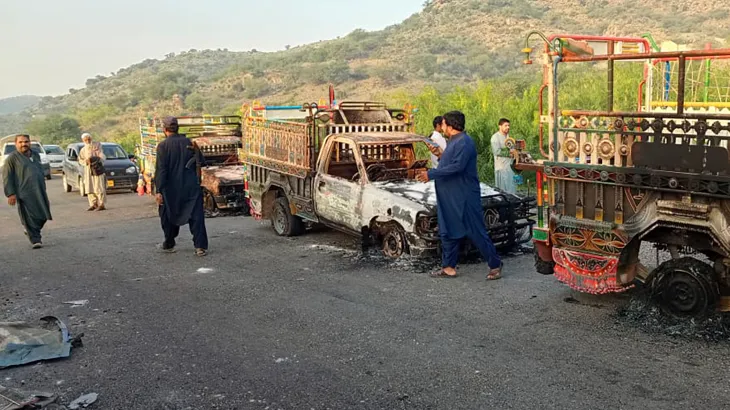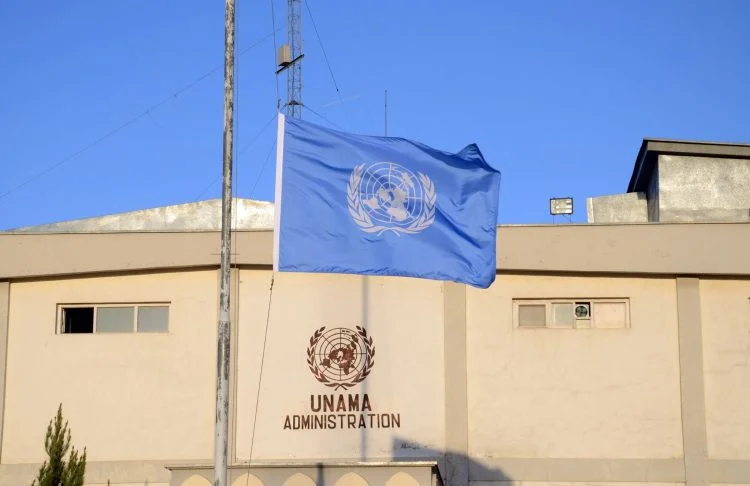The 26 August is the deadliest day in the annals of Balochistan, placing Balochistan in limelight once again. On 26 August 2006, the army assassinated Baloch nationalist leader and seasoned politician Nawab Akbar Khan Bugti in an operation near Dera Bugti in Balochistan. This year, on 26 August, the separatist group Balochistan Liberation Army (BLA) carried out an operation named Herof (Black Storm). The BLA went on a rampage across the province, storming police stations, setting fire to almost three dozen vehicles, and blowing up railway tracks. The attacks resulted in 74 casualties, including 14 security personnel.
The attacks, by and large, coincided with the 18th death anniversary of Nawab Akbar Bugti. The Majeed Brigade orchestrated the attacks and used two suicide bombers, including a female. They simultaneously attacked a paramilitary camp in Bela, police stations, Levies stations, and blocked key roads, including Coastal Highway. Muhammad Amir Rana, a security analyst and director of the Pak Institute of Peace Studies (PIPS) says that “there was a major attack on security forces in May last year, but today’s events are significant. Highways were blocked, railway tracks damaged, all near Punjab.”
Historical Context and Evolution of the Balochistan Crisis
The fifth insurgency in Balochistan is alarmingly becoming a daunting challenge for Pakistan. The fifth insurgency first time lasted for two decades. The tribal chiefs dominated the previous four insurgencies and merely demanded political autonomy. However, the Baloch middle class now dominates the fifth insurgency and seeks independence rather than political autonomy. The insurgency has evolved to carry out attacks in other provinces too.
The recruitment of women as suicide bombers in the insurgency altered the tactics of the movement; Controlling female suicide members is an uphill task, intensifying the state consternation.
Strategic Implications for the China-Pakistan Economic Corridor (CPEC)
Over the last few weeks, Balochistan has appeared in limelight, given the protests led by the Baloch Yakjehti Committee (BYC) in Gwadar and across major cities of Balochistan. BYC demanded the end of extrajudicial killings, enforced disappearances and seeking democratic rights and economic development of the marginalized and deprived Balochistan. BYC maintained that CPEC remained unsuccessful in embarking on the path to growth and prosperity in the province. Meanwhile, the state strived to halt the protests in Gwadar by using force resulting in the spread of protests in nine major cities of Balochistan.
According to seasoned Baloch politician Dr. Malik Baloch, the aggressive policies of the state fueled further separatist militancy. The situation requires addressing the root causes of discontent and ensuring development benefits reach the local population. The BYC march is a significant event in Pakistan’s history paving the way for a new dimension to the separatist movement. Baloch women are leading a historic political resistance movement which is the biggest in the history of Balochistan.
ISPR vs. BYC
Inter-Services Public Relations (ISPR), Director General Lt General Ahmed Sharif Chaudhry termed the BYC leadership as “proxies” for “terrorists and criminal mafias”. “Let me make it clear that the BYC and its so-called leadership are nothing but a proxy of terrorist organizations, illegal spectrum, and criminal mafias,” Chaudhry added. While Dr. Mahrang Baloch the leader of BYC articulates that “we invite the military to establish an investigative committee through a neutral third party or human rights organization to investigate the allegations against the Baloch Unity Committee. If any of the allegations are proven, we will present ourselves in any court in Pakistan or the world. We believe that the military’s press conference against the Baloch Unity Committee supports the stance of all oppressed nations in the region that there is no democracy, constitution, or law in Pakistan, but rather a brutal dictatorship and fascism since day one”.
Addressing the Issue of Balochistan within the Framework of Geo-Economy
The unaddressed grievances of Balochistan under CPEC are intensifying challenges in Balochistan.
These unaddressed grievances that have put Balochistan in limelight under CPEC are intensifying challenges in the region. As far as Sana Baloch, a Baloch nationalist leader is concerned, seventy per cent of population of Balochistan resides below poverty. The mortality rate of the province is the highest while the literacy rate is the lowest in the country. Balochistan is the only province that still lacks a motorway, more than 6 thousand people perish in traffic accidents annually. Road death causalities are higher than terrorism incidents in the province. Despite the launch of CPEC almost a decade ago, the mega city still lacks a standard hospital. Its residents go to Karachi for medical assistance for minor illnesses.
Addressing Local Grievances and Ensuring Stability
The city still relies on Iran for electricity. By protesting in Gwadar BYC gained attention in international media and internationalized their cause. Such protests in Gwadar and Balochistan might threaten the CPEC project and Gwadar port development. The growing ethnic tension and security concerns in Balochistan are likely to pose a challenge to Chinese investments. Beijing has already expressed reservations over the security situation and urged Islamabad to protect Chinese personnel and its projects. The deteriorating law and order situation might test Pak-China relations.
If Pakistan, particularly Balochistan, does not address the security situation, China might re-evaluate its investment in the country. Beijing worries that increasing disruptions, delays, and security challenges are accelerating costs and risks. Beijing and Islamabad need to engage in introspection and should navigate issues to maintain close relations. Pakistan cannot win the confidence of China unless security threats are addressed and security threats are the main challenge to CPEC.
International Strategic Interests in the Region
However, the United States is wary of China’s Belt and Road Initiative (BRI). In December 2017, the US National Security Strategy stated that China’s “infrastructure investments and trade strategies reinforce its geopolitical aspirations”.
Old habits die hard. It is hard for the US to eschew the Cold War mentality. The US policy of containing China is in full swing in the region.
The ideational and material powers in the international arena have been shifting from the West to the East causing extra anxiety for the US. The great power rivalry, thus, is gaining momentum in the Asia and Indian Ocean. Topping Hasina Wajid’s government in Bangladesh, the assassination of Iranian leaders by Israel and embroiling the country in the Middle Eastern war can be observed in the ongoing great power competition aimed at intensifying China’s worries in the region. The unprecedented upheavals that put Balochistan in limelight, the nerve center of Pakistan, are unlikely to remain immune to evolving regional political changes.
Addressing the issue of Balochistan within the framework of the geo-economy, avoiding force, utilizing soft power, negotiating with your young leaders of BYC, bringing them to the mainstream politics, and fostering development and prosperity under CPEC in Balochistan will prove effective for the state.
The views expressed in this article are the author’s own. They do not necessarily reflect the editorial policy of the South Asia Times.







